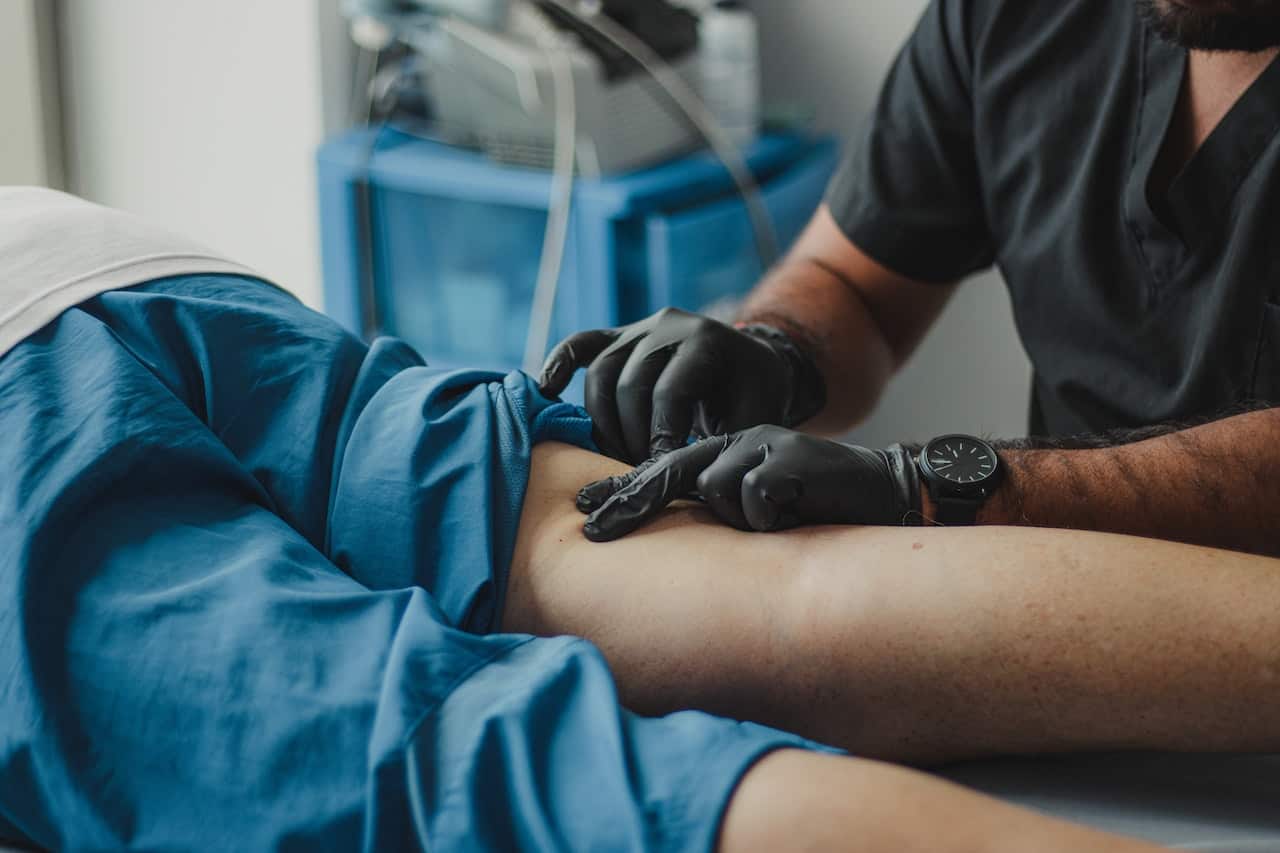Knee replacement, also known as knee arthroplasty, is a surgical procedure that uses an artificial joint to replace a damaged or worn-out knee joint. This procedure is usually recommended for people who have severe knee pain and limited mobility as a result of osteoarthritis, rheumatoid arthritis, or an injury.
The knee joint is the largest in the human body, consisting of the lower thigh bone (femur), the upper shin bone (tibia), and the kneecap (patella). The cartilage covering these bones provides a smooth surface for the bones to move against each other. Ligaments and tendons provide stability and support to the knee joint.
When the cartilage in the knee joint wears away as a result of injury or disease, the bones rub against each other. This can cause pain, stiffness, and restricted mobility. Knee replacement surgery is frequently recommended when other treatments, such as medication or physical therapy, have failed to relieve symptoms.
The damaged parts of the knee joint are removed during knee replacement surgery and replaced with an artificial joint made of metal, plastic, or ceramic materials. The procedure is usually carried out under general anesthesia and can take several hours to complete.
In some cases, the surgery may be performed using minimally invasive techniques, resulting in smaller incisions and shorter recovery times. Patients usually stay in the hospital for several days after surgery to recover. Physical therapy will also be required to help patients regain strength and mobility in their knees.
This may involve exercises to improve range of motion, as well as walking and other activities to help rebuild strength in the knee joint. Although knee replacement surgery is generally regarded as safe and effective, it does carry some risks and complications.
Infection, blood clots, nerve damage, and joint stiffness are all possibilities. Patients may also experience knee pain and swelling for several weeks or months following surgery.
While the surgery can provide relief and improve mobility, it is important to understand that it is not a quick fix and that proper post-operative care and attention are required. Unfortunately, some patients make mistakes during their recovery that can stymie their progress and even lead to complications.
So in this article, we will look at the top five mistakes patients make following knee replacement surgery and offer advice on how to avoid them. Patients can ensure a smoother and more successful recovery from knee replacement surgery by being aware of these common mistakes and taking steps to avoid them.
5 Mistakes Patients Make Following Knee Replacement Surgery
Knee replacement surgery is a major procedure that requires careful post-operative care and attention to ensure a successful recovery. While the surgery can provide relief and improve mobility, patients must be aware of the top five mistakes they can make following knee replacement surgery, as these can impede their progress and even cause complications. Here are the top five mistakes patients make following knee replacement surgery:
Ignoring Pain or Discomfort
Pain management is a crucial part of the recovery process, and patients who ignore pain or discomfort may experience long-term complications because patients who ignore pain or discomfort after knee replacement surgery may risk causing further damage to their knee or prolonging their recovery.
Therefore It is important to communicate any pain or discomfort to your doctor so that they can adjust your medication or therapy accordingly
Not Following the Rehabilitation Plan
Another common mistake patients make following knee replacement surgery is not following the rehabilitation plan prescribed by their doctor. This can result in slower healing, reduced mobility, and even the need for additional surgeries.
The rehabilitation plan typically includes exercises, physical therapy, and lifestyle changes that are crucial for recovery. Patients who do not follow the plan may experience stiffness, pain, and weakness in their knee, which can delay their recovery.
Overexertion
Patients may be eager to regain their mobility and return to their normal activities after knee replacement surgery, but overexertion can lead to setbacks in the recovery process.
They may experience swelling, pain, and inflammation, which can slow down their recovery, so is important to follow the rehabilitation plan and gradually increase activities under the guidance of a doctor or physical therapist.
Skipping Follow-Up Appointments
Skipping follow-up appointments is a mistake that many patients make after knee replacement surgery. These appointments are crucial for monitoring progress, identifying potential complications, and making adjustments to the rehabilitation plan as needed.
Patients who skip these appointments may miss important updates on their recovery progress or experience setbacks without proper guidance. It is important to attend all follow-up appointments as scheduled and communicate any concerns or issues to your healthcare provider.
Returning to Work Too Soon
Patients may be eager to return to work following knee replacement surgery, but returning too soon can hinder the recovery process. Patients who return to work before they are fully healed may experience pain, stiffness, and reduced mobility.
It is important to follow the rehabilitation plan and wait until you have received clearance from your doctor or physical therapist before returning to work.
Finally, knee replacement surgery can be a life-changing procedure that provides patients with chronic pain relief and increased mobility. However, you should be aware of the potential errors that can occur following surgery, as these can result in complications, delays in recovery, and a lower quality of life.
You can improve your chances of a successful and faster recovery and enjoy the full benefits of knee replacement surgery when you avoid the top 5 mistakes listed above. You must also be proactive in your recovery process and collaborate closely with your medical providers to achieve the best possible outcome.
This includes adhering to all physical therapy, pain management, wound care, and other aspects of post-operative care instructions and recommendations. Also, it’s important to keep a positive attitude and be patient during the recovery process, as full recovery from knee replacement surgery can take several months.
Read More: What to expect after declawing a cat






